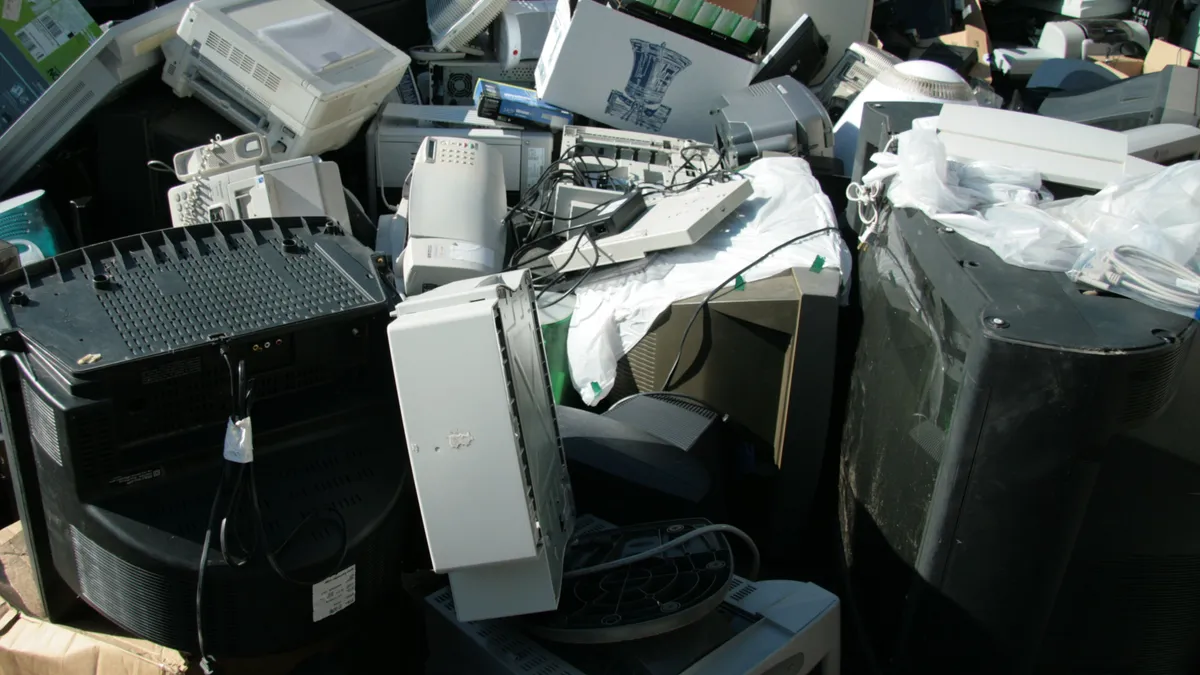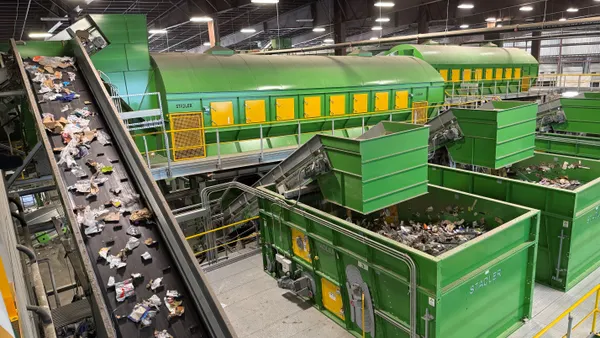Dive Brief:
- Agbogbloshie, the world’s largest e-waste site, is located in Ghana.
- Regolith, a film depicting the life of scrappers -- boys, not men, who scour the site to find electronics that can bring value to the pickers -- was directed by London-based cinematographer Sam Goldwater.
- A study conducted by MIT for the United Nations found that the demand for electronics will increase global e-waste by 33% between 2012 and 2017. The e-waste will most likely end up in one of seven emerging countries; Ghana is one of them.
Dive Insight:
Goldwater heard stories about the e-waste site and wanted to see it first-hand, while documenting the lives of the pickers who collect the waste. Goldwater says the reason he wanted to tell the story of the kids and the Agbogbloshie landfill is that “[i]t seemed to me a profoundly modern story -- immediately familiar technology; VGA cables, motherboard, ‘Acer’ branded flat screens traded and utilized with totally different associations. Technology’s value to me was measured in gigabytes, cores, nits -- here, the values were by the gram of copper, aluminum. Circuit boards are sold in rough plastic sacks by the kilo.”
According to statistics reported in The Mercury, 80% of electronics are not disposed of properly. Maureen O’Donnell wrote in the EHS Journal that, “E-waste is either discarded or exported to emerging nations, where open air burning and acid baths are used to reclaim precious metals and other elements.” She also noted that the lack of proper controls in these countries are being exposed as elevated lead levels in children and the pollution of soil and water via heavy metals becomes increasingly prevalent. O'Donnell dubs this, “the forefront of a growing catastrophe.”
According to research conducted by the BBC, in 2012 consumers worldwide bought 238.5 million TVs, 444.4 million computers and smart devices, and 1.75 billion phones -- most of which will be thrown away within three years.
In May, the ISRI convention touched upon the issue of e-waste in emerging markets, and concluded that there was progress in emerging waste markets due to flexible regulations and increasing industry support.













